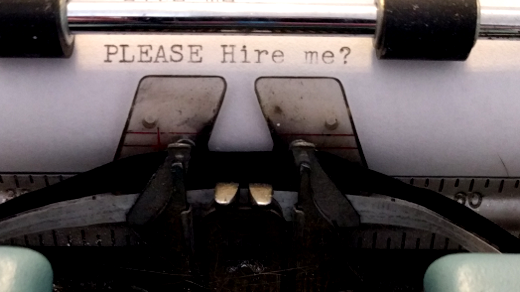We all love free and open source software and culture, but few of us are lucky enough to be paid to do that work. The rest of us need to find jobs that will allow us to pay the rent and support our families while still (hopefully) giving us leisure time to indulge in our free and open passions.
In a previous article, I shared 10 tips for improving your resume. The next step in most job hunts is writing the cover letter.
Cover letters are a surprisingly polarizing topic among those who hire in technology. Some hiring managers think they are a waste of time; they never read them, instead relying purely on a candidate's resume. Some companies don't even make a provision for submitting a cover letter in their online application processes.
Naturally, your resume is an important document in the job-hunt process. It tells your prospective employer what you've done and what you know. Similarly, your portfolio (GitHub, etc.) shows the hiring manager the how of your career: how you implement the code or the design or the document. These things are important, but so is the cover letter.
When I hire, I require cover letters from all applicants. Here's why: I hire people; I don't hire shopping lists of tech skills. Although, yes, your skillset is important to me, I'm far more interested in who you are, what you can do for me, and how you interact with others. I can teach anyone how to use our technology. It's much harder to teach someone how not to be a jerk. Your cover letter is going to tell me who you are and, importantly, why I should care. What problems are you going to help me solve? Without that cover letter, I have no insight behind the resume or code sample—and I'm given little motivation to learn more. You're just another faceless resume in the stack.
What can you do to get the biggest bang for your cover letter buck? Here are 5 tips:
1. Customize
If your cover letter arrives on my desk and is obviously a cut-and-pasted template, I'm less likely to follow up on your application. To me, it doesn't feel like you want this job; you're just looking for any job. This may actually be the case. You may be in a situation where you need to land any reasonable job as quickly as possible. Even if you are, don't cut and paste your cover letter in this way. You're courting this potential employer. Make them feel special with a customized cover letter.
Which isn't to say you should necessarily rewrite a cover letter from scratch for every job to which you apply. It's OK to have some sort of scaffold or template around which you build individual letters.
Do your research about the company and the position, and incorporate that into the letter. Examples of what you could include:
- What problem are they trying to solve? They wouldn't be hiring if they didn't have problems, so how can you help them?
- Who is the hiring manager? Address them directly in the salutation of the letter. Decades of direct marketing research show that personalized messages are more likely to be received favorably. Plus, going this extra mile to address your potential manager reflects well on you.
- What are the company's values and mission? If you agree with these things, incorporate them into your letter. Naturally, if you don't agree with the values and mission you should not apply for the position.
2. It's not about you; it's about me
The hiring team has needs. It has deadlines to meet and bugs to fix and code to refactor and rearchitect and documentation to update and people to hire and mentor and meetings upon meetings to attend. How are you, applicant, going to make all of this easier for them? How are you going to make a positive difference for them and for the company?
What many applicants forget is that as a manager I really want to hire you. Hiring is a lot of work, and it's a very important part of my job, but it's also a very time-consuming part of my job. The faster I'm able to get the right person in the door and productive so my team can keep moving forward and hitting deadlines, the better. If your cover letter tells me how you will help us do that? I'm already predisposed to like you.
3. But, really, it's about you
Many people rephrase their resume in their cover letter. This is a common mistake. The hiring team already has your resume in hand and is perfectly capable both of reading and of understanding it. Providing redundant information deprives you of the chance to say something new and attention-getting (in a good way).Your cover letter is your opportunity to show the hiring manager how you're going to be an asset to the team. You're skilled, sure, but you also collaborate well and have taken leadership roles. You're well-spoken. You're witty. You support the mission of the company. You're going to join the team and make things better for them and here's how. Tell the manager who you are and why they should care.
4. Predict and elucidate
Sometimes when writing your cover letter, you must channel your inner Carnac, answering questions before they've even been asked. After reviewing your cover letter and resume, the hiring committee may be left scratching their heads over some subjects. If there are other candidates who initially appear as qualified as you, but whose applications do not leave so many question marks hanging in the air, your resume will not be put in the short pile; however, if you predict the hiring committee's most pressing questions and provide the answers upfront in your cover letter, it can make all the difference. Examples of questions that a hiring team might have when reviewing your application:
- You haven't been working for a while. What have you been doing in the meantime?
- This job is based in Mexico City, but you're in Prague. Are you looking to relocate or work remotely?
- You've spent the past 10 years as a software developer. Why are you applying for a position as a tech writer?
5. Form follows function
Coco Chanel once said, "In order to be irreplaceable, one must always be different." All those job hunt books you get from the library? They're wrong: There is no rulebook for the format for your letter.
Your cover letter should reflect your personal style as well as the style and culture of the organization to which you're applying. Most often, that will be a basic letter where the content speaks for itself; however, sometimes it may make more sense to stand out in some way. Perhaps a "letter" written in the form of a stack of calls to the company's public API. Maybe a link to a website you designed solely for this purpose. Animated cat GIF? Um... Okay, but only if that's what makes sense.
Always remember: Don't be clever purely for the sake of cleverness. The goal of your cover letter is to show the hiring manager who you are, what you can do for them, and turn heads in the most appropriate way. No one likes a cocky show-off.
What other cover letter tips do you have? Let me know about them in the comments.







5 Comments